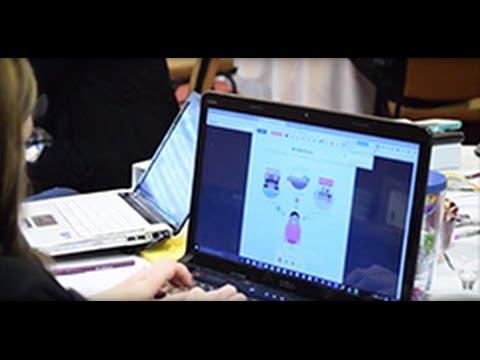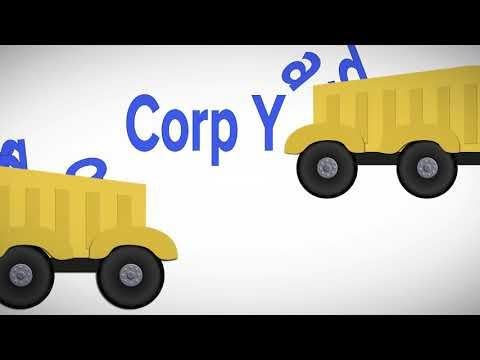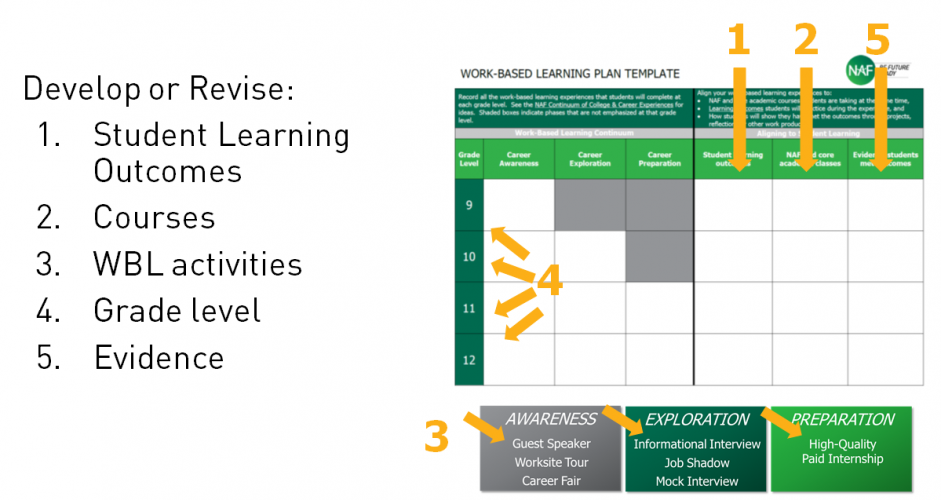Program Content Development
Governments Engaging Youth (GEY) programs offer an opportunity to teach youth civic and 21st century skills and competencies. It also helps youth gain real life experiences to practice those skills and to understand local government first-hand through speakers, field trips and internships or job shadows. Here you will find different examples of program curriculum related to how government operates, developing soft skills, and preparing students to develop advocacy projects, as well as resources to help you with work-based learning experiences to make the most out of your program for youth.
What do we want youth to know?
- GEY Skills & Competencies Matrix: Use this matrix to help you think through what skills and competencies you would like your youth to develop and cultivate through your GEY program.
- GEY Activity and Skills Mapping Worksheet: What Do We Want Youth to Know & Do?: Use this worksheet to map out the activities that youth will complete and learn.
- Sample Goal Setting Form for Interns
Program Calendars
- 6 Week Program with Internships: Curriculum Calendar & Key Dates (Sacramento)
- 5 Week Program with Internships: Curriculum Calendar (Oxnard)
- 3 Week Program with Job Shadows: Curriculum Calendar (Yuba City)
- Daily Agenda for Extended SACH Program (Sacramento)
- Orientation Agenda for Extended SACH Program (Sacramento)
- Rough Draft 2 Week Course (Sample)
- Rough Draft 2 Week Course (Elk Grove)
- Sample calendar proposed in a funding request
- High School Engineering Intern Program Calendar (Oakland)
- Health Pipeline Partnership (Alameda County)
- Schedule for Fire Department Internship (West Sacramento)
- Senior Project Components and Calendar
- Public Health Calendar-10th Grade
Program Developed Curriculum & Additional Resources (Intern Resources, Orientation Materials, etc.)
- Sacramento Employment & Training Agency created a guidebook for internships. See “How to Create a Youth-Friendly Workplace: An Employers Guide to Building a Quality Internship” and “Your progress in applying youth development / Internships: Tips and Tools.”
- SETA's Internship Guidebook: An Employers Guide to Building a Quality Internship
- See the Institute for Local Government’s collection of orientation materials for introducing new audiences to local government.
- Program Guide & Curriculum Example: City of Sacramento
- Advocacy Project Instruction Example: City of Sacramento
- PRO-Youth developed this great deck of slides to provote thinking, teamwork and communication.
- Skill-Building-Activities and Questions
- The International City/County Management Association has a few resources to help students learn more about democracy in action at the local level. They also provide youth with some guidance about careers in professional local government management. See ICMA – Life, Well Run. See this tip-sheet on Forms of Local Government (ICMA).
- The Institute for Local Government has a section of its website devoted to the responsibilities and powers of local agencies. Topics include the authorities and limitations of local agencies, sources of law and descriptions of individual agency functions as defined by statutes and charters. See ILG’s Local Government Basics: Responsibilities and Powers of Local Government Agencies.
-
Sacramento County
Office of Education’s Action Civics program has several
materials available to “seamlessly combine civics content, CCSS
literacy standards, and 21st Century skills by engaging
students in an investigative process around a problem, issue,
or challenge identified by students.”
- Planning Outline (Action Civics)
- Process Guide (Action Civics)
- Civics Action Card Sort (CA Democracy School)
- Civic Definition Cards (Action Civics)
- Project Based Learning Checklist (Action Civics)
- Questions to Action (Action Civics)
- Who Would You Call? (Action Civics)
- Service v Advocacy (Action Civics)
- Why care about my community? Exercise for Youth
Advocacy Curriculum Resources
- Youth Engaged in Leadership and Learning (YELL): A Handbook for Program Staff, Teachers, and Community Leaders (Chapter 3)
- Generation Citizen - Civic Resources to Promote Civic Knowledge, Skills and Motivation
- Constitutional Rights Foundation
- Mikva Challenge
- iCivics
- Project Citizen
- Something is Wrong: Exploring the Roots of Youth Violence
Soft Skills Curriculum Resources
- Youth Engaged in Leadership and Learning (YELL): A Handbook for Program Staff, Teachers, and Community Leaders (Chapter 2)
- Soft Skills to Pay the Bills – Mastering Soft Skills for Workplace Success (US Dept of Labor)
- New World of Work
- YouTube Videos from New World of Work – Skill Alignments
Work-Based Learning Resources
Our GEY program is fortunate to have NAF (formerly the National Academy Foundation) participating in our Advisory and Technical Team. Included here are resources and best practices related to work-based learning.
Work-Based Learning (WBL) is an instructional strategy that:
- Connects what students are learning in class to the world of work
- Involves interaction with partners
- Provides students a continuum of experiences
- Aligns with intentional student learning outcomes
- Prepares students for success in post-secondary education and careers
- Benefits the student, the partner, the teacher, and the school
Resources for Work-Based Learning Best Practices from NAF and Partners
- Benefits of Work-Based Learning (NAF)
- Work-Based Learning Webinar: Introducing the 123s and ABCs
- CRANE Work-Based Learning Continuum
- Career Ambassador Guide (Sacramento Municpal Utility District)
- Job shadow/internship Guidelines & Materials
Sample Internship Projects
Sample Internship Projects-Ventura County Civic Alliance
Digital Badging
Our GEY efforts are supported by the Linked Learning Alliance and their participation in our Advisory Committee. Their expertise in digital badging is shared in the content provided here and in the resource:
Digital Badging: An Introduction and Guide to Getting Started
Digital badges offer a visual way to showcase specific skills and accomplishments. At times it may be able to better provide unique context and background about an individual than traditional transcripts or certificates. Also referred to as online badges, digital badges often represent a more detailed picture than a CV or resumé as they can be presented in ever-changing combinations, creating a constantly evolving picture of a person’s lifelong learning. Click here for a video introduction to digital badging.
Here are some examples of what a digital badge can represent:
- Learning (an institution someone attends or an online learning experience)
- Work (past internships or jobs)
- Program or club participation (volunteer, leadership)
- Accomplishment (won a competition or received an award)
- Skill (leadership, problem-solving, empathy)
- Digital Badging Webinar: Why it Matters and How to Get Started
- West Sacramento Summer STEPS Program & Digital Badging Component

Program Attendance, Dress, Policy Handbook for Youth
- Program Policies Handbook Example: City of Sacramento
- Student Intern Standards (Oakland)
- See this video from the City of Vacaville about dressing for
success:






